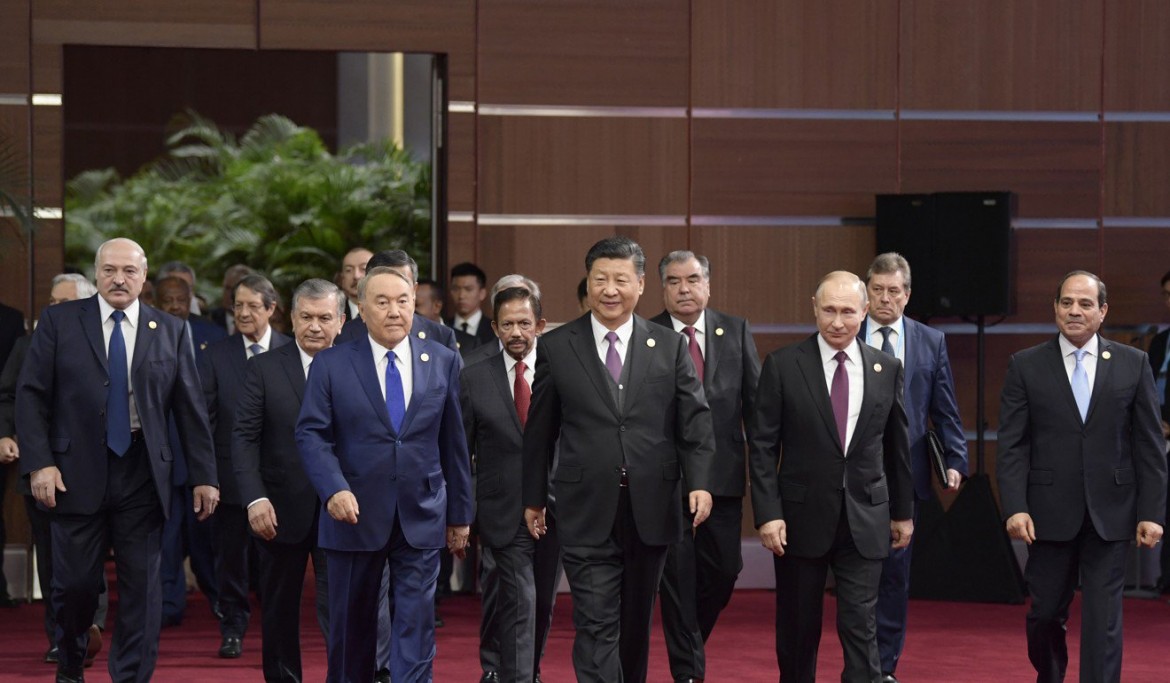Analysis
Italian PM, In China, tries to figure out what he signed with Xi
It appears that Italy’s prime minister is seeking confirmations and reassurances about what his memorandum of understanding with China actually means. It was signed and advertised by Rome as a trade deal, but Beijing designed it from the start as a political agreement.

At the Second Belt and Road Forum in Beijing, the only G7 leader present was Italian Prime Minister Giuseppe Conte, coming shortly after signing the Memorandum of Understanding between Italy and China. The Italian prime minister said that “Italy is not just creating opportunities for itself but for the whole of Europe: this is why we are also expecting greater Chinese investments in Italy.”
During his meeting with representatives of the Italian community in China—“one of the youngest I’ve met so far,” in Conte’s words—at the Italian embassy in the Chinese capital, Conte stressed that Italy could get great opportunities as a result of joining China’s New Silk Road initiative. As regards the issue of 5G technological infrastructure, he reiterated that “the highest safety standards will be guaranteed: Italy wants to be present, wants to speed up the process, but within the limits of the guarantees of the EU.” That sounds reasonable—too bad he didn’t think of that, or at least failed to properly emphasize it, before agreeing to sign an MoU in which telecommunications are mentioned without such provisions.
That’s not the only thing the Italian government hasn’t thought through. Conte said he expects more Chinese investments in Italy, sounding like he was under the impression that he had signed a full-fledged trade agreement with China, rather than a limited set of deals that came together with the MoU, with a current value of just over €2 billion (some of which are the result of negotiations that had been underway for some time).
In short, it’s not just China who seems to feel the need to reassure everyone to some extent, as Xi Jinping attempted to do in his speech before the forum. It appears that Conte is also in need of confirmations and reassurances about what the Memorandum of Understanding actually means. It was signed and advertised by Rome as a trade deal, but Beijing designed it from the start as a political agreement. It’s no accident that Conte went almost alone to Beijing (with only Rocco Casalino accompanying him): neither Undersecretary for Development Michele Geraci (one of the architects of Rome’s recent rapprochement with Beijing), nor any Italian entrepreneurs and companies came along.
Between signing the MoU and his visit to Beijing, the Italian prime minister felt the need to clarify that he “supported” the joint trade initiatives with Japan. Furthermore, as one would expect, he had many words of reassurance for both the US and the EU.
Beside the relatively unimportant Italian drama, the Forum was the setting for an important speech by the President of the People’s Republic of China, Xi Jinping.
With words like “green,” “sustainable,” “transparent,” “inclusive” and “multilateral,” Xi Jinping used the stage of the Second Belt and Road Forum to try to allay the controversy and skepticism against the Chinese project, making use of his usual chameleon-like ability to deal with unforeseen circumstances.
His speech—significantly shorter than the far more exuberant one he made at the first Forum—also made significant promises on issues tied to the protection of intellectual property and to the debatable strength of China’s currency, the yuan. His words seemed more addressed to the United States than to China’s own partners, which were unlikely to have many concerns with China’s positions, which have mainly remained unchanged. Nonetheless, Xi seems to have specifically wanted to address a certain negative sentiment that he had sensed.
We might expect to see a more cautious and wily China in the near future—not as much due to confronting any particularly adverse conditions (the BRI has had to scale down a few of its projects, but it is such a wide-ranging initiative that the Chinese leadership had planned that some obstacles would arise), but because Xi Jinping probably wants to pay more attention to what is going on inside the country: the issue of the trade war with the US and the problems regarding economic growth (with the need to devote resources and time to address the inequalities that still exist in China) will require Xi’s direct efforts.
There is no opposition against his rule and no outspoken disagreement with his leadership, but the recent dissatisfaction that has emerged in the universities has certainly sent a message to the Chinese leader that he needs to focus on regaining control of what is happening in the country. In any case, his novel international push has already achieved a number of significant results, and—most importantly—has changed the perception of most of the world regarding China’s importance on the global stage.
Originally published at https://ilmanifesto.it/conte-in-cina-prova-a-capire-cosa-ha-firmato-con-la-cina/ on 2019-04-27
